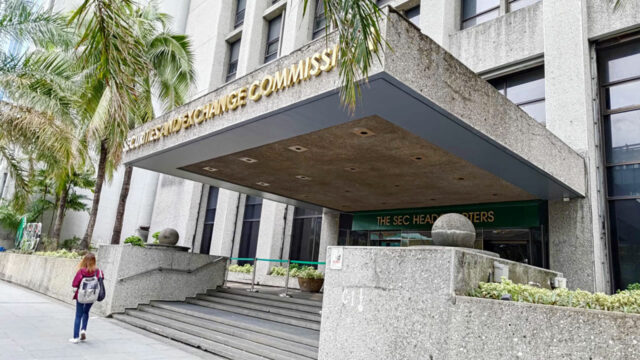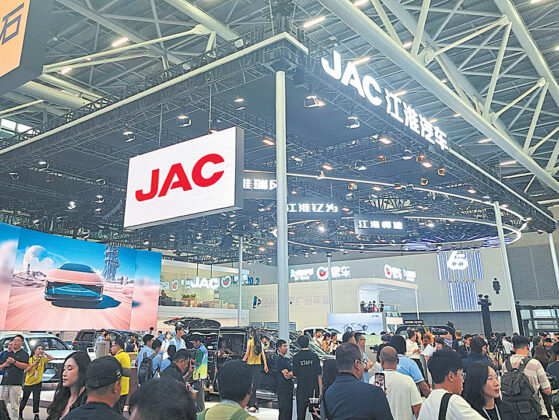Endeavor Philippines celebrates decade of entrepreneurial impact

By Mhicole A. Moral, Special Features and Content Writer
Endeavor Philippines commemorates 10 years of driving high-impact entrepreneurship in the country with the release of its 2024 Impact Report, themed “10 Years of Multiplier Effect,” which focuses on creating an entrepreneurial ecosystem that empowers visionary founders, and builds a culture of innovation and collaboration.
According to the report, the Multiplier Effect is a principle that demonstrates how the growth of one entrepreneur can catalyze innovation and opportunity for others. Through mentorship, investment, and inspiration, high-impact entrepreneurs not only scale their ventures but also empower emerging founders to follow suit.
Endeavor’s “pay-it-forward” culture also amplifies individual success and drives collective progress that will further create a compounding impact across the Philippine economy.
Since its establishment in 2015, Endeavor Philippines has supported 46 entrepreneurs across 33 companies in key industries such as fintech, e-commerce, and logistics. This ecosystem has generated over $900 million in revenue, more than 66,000 jobs created, and $1 billion in capital raised in 2023 alone.
“At Endeavor, we’re not just supporting individual entrepreneurs; we’re building a chain reaction that reshapes industries and empowers entire communities. Each founder we back is a catalyst for innovation and opportunity, multiplying their success by mentoring, investing, and paving the way for others,” said Endeavor Philippines Managing Director Manny Ayala.
“Our goal isn’t just growth — it’s enduring transformation, driven by entrepreneurs who will continue to elevate the Philippine economy long after Endeavor’s work with them is done,” he added.
Empowering impactful leaders and companies
Endeavor’s 2024 Impact Report spotlights the success of entrepreneurs from innovative companies like Angkas, BillEase, CloudEats, Coins.ph, edamama, Kalibrr, and Kumu. Such stories from these entrepreneurs reflect Endeavor’s Multiplier Effect to guide the next wave of Filipino entrepreneurs.
One inspiring example is Steve Sy, co-founder of Great Deals, who credits Endeavor for helping him scale his company into the Philippines’ leading e-distributor. Today, Mr. Sy mentors over 60 founders, sharing his knowledge through faith-based programs that bridge tech and non-tech industries.
“Endeavor has been instrumental in my journey — providing the mentorship, network, and resources that helped me scale Great Deals into the top e-distributor in the Philippines. Supporting others as they navigate their own paths to success is incredibly fulfilling, and it feels meaningful to carry forward the support that Endeavor extended to me,” Mr. Sy explained.
Similarly, edamama founder and CEO Bela Gupta D’Souza noted the importance of Endeavor’s “pay-it-forward” culture to inspire a new wave of nation-builders: “What Endeavour brings to the table is that they’re really coming at this from the perspective of trying to make you the best version of an entrepreneur. There are some amazing companies that support startups today; and so, that will really inspire the next generation of entrepreneurs that the country could really benefit from.”
From impact to legacy
Endeavor’s success can also be credited to its Endeavor Catalyst fund, a rules-based co-investment vehicle that invests in Endeavor Entrepreneurs’ companies.
With over $500 million in assets under management (AUM) and investments in 57 unicorns across 35 markets, Catalyst provides financial backing to scale high-growth startups. It also sustains Endeavor’s operations, ensuring the organization continues to thrive globally and locally.
Endeavor Philippines plans to scale its impact even further by focusing on global leadership that positions Filipino entrepreneurs at the forefront of addressing global challenges; an inclusive ecosystem that ensures accessible opportunities, mentorship, and capital for all entrepreneurs; and instilling a cycle of growth where every success story inspires the next generation.
“The next chapter of our journey is where we will take the bold leaps necessary to catalyze the Philippine ecosystem for generations to come,” said Anthony “Anton” Huang, president of SSI Group and board member of Endeavor Philippines. “If Endeavor 1.0 was about scaling up high-impact entrepreneurs, Endeavor 2.0 would be about going beyond individual growth and fully transforming our ecosystem. Our vision for the next decade is ambitious but achievable ,and focuses on creating a true multiplier effect where success doesn’t just add up, it multiplies.”




















